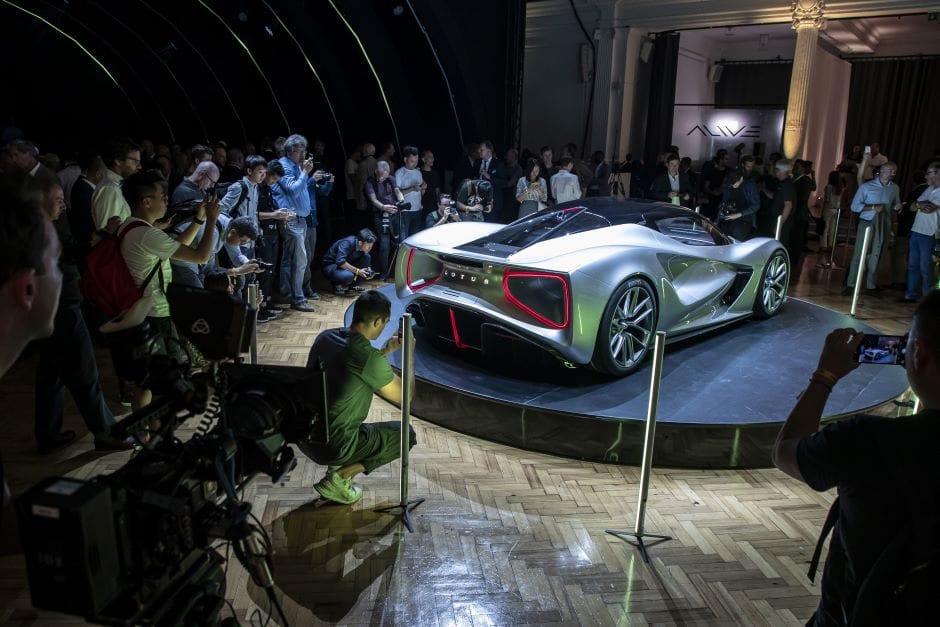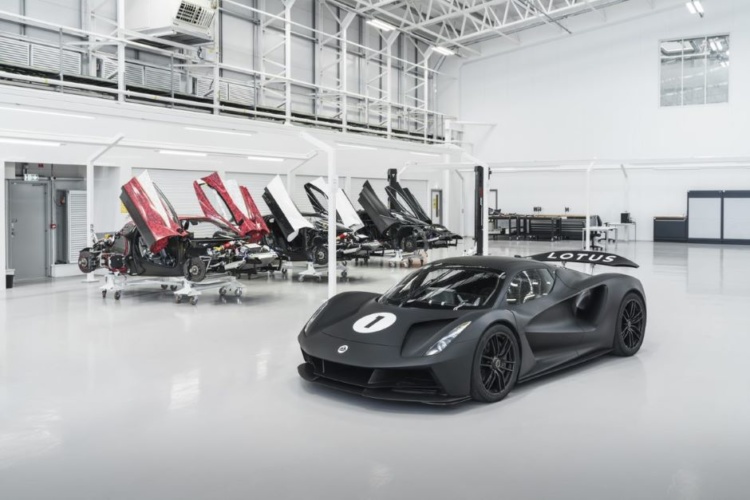
The announcement from the Hethel-based sports car manufacturer forms part of a wider initiative at Lotus to transform the business, brand, and results by 2028. In a statement, the company said it is already ‘sparking a new generation of Lotus cars, which will lead to an increase in vehicle sales worldwide.’
Lotus unveils first all-electric British hypercar
Factory move to create up to 125 jobs at Lotus Cars
“We’ve done some things very, very well over the years but we haven’t been able to turn that into a sustainable business,” said Matt Windle, MD, Lotus Cars during a global virtual conference. “What we need to do is find a blend of what we know we do well. That will lead to broader appeal amongst a global audience that will lead to more volume and profit which in turn leads to more commercial success.
The company – which introduced iconic models including the Elise, Elan and Evora - will produce one more ICE vehicle before switching to electric powertrains.
Previously codenamed Type 131, the Emira is set to be unveiled at Lotus Advanced Performance Centre in Hethel on July 6 before making its way to the Goodwood Festival of Speed for its public dynamic debut.

Emira will be built on one of four new architectures – sports car, hypercar, premium and e-sports - announced by the company to underpin the next generation of Lotus performance cars. OEMs will be able to access these structural architectures via Lotus Engineering, which has been implementing Vision80 - Lotus’ multi-faceted and long-term business transformation strategy - with several high-profile partnership projects. These include Project BattCon, a pilot containerised battery testing facility, and Project LEVA (Lightweight Electric Vehicle Architecture) which is developing new lightweight structures for next-generation battery electric vehicles.
“These projects are an excellent calling card for the skills, resources and experience of our consultancy – bringing in new partnerships from all around the world, be they OEM, start-ups or special commissions,” said Uday Senapati, executive director, Corporate Strategy and Product Management at Lotus. “Such partnerships continue to play a vital role in the journey of Lotus Engineering.”
As part of the company’s transformation, the company is introducing a new technical roadmap dubbed EAS-IP that is expected to guide the work of consultancy.
“The technology roadmap we have in place is defined by legislation but it's also about customer demands and the challenge is always how quickly can we get new technology onto new vehicles,” said Windle. “Lotus in the future is going to be looking at intelligent technology so we want the cars to understand the owners, be it through AI or machine learning. The opportunities there are great, but we’ll be developing them. With every new model you’ll see new levels of technology in the cars.”
EAS-IP explained
Electrify: A pure electric future for Lotus, as first demonstrated by the Evija hypercar, has been part of the Vision80 strategy from the start. After the Lotus Emira, every new Lotus car will be electric.
Amplify: Lotus is committed to delivering innovative and engaging technologies. It will dial up the importance and prevalence of technology in its new product range. In tandem with performance, this will drive the desirability of future models.
Simplify: It was Lotus founder Colin Chapman who famously said the key to performance was to ‘simplify and add lightness’. Nothing has changed. Lotus technology will be an enabler, and will simplify the driving and ownership experience for customers.
Intensify: Lotus is fast developing a reputation as a world leader in Human Machine Interface (HMI), User Interface (UI), and User Experience (UX). With every new product launch, the role of innovative new technology will be intensified.
Personify: Lotus will use technology to give its new models an identity, a brand character that will become part of the company’s DNA. Lotus cars will be customisable through technology, mirroring and adapting to each customer’s tastes.
Source: Lotus




Glasgow trial explores AR cues for autonomous road safety
They've ploughed into a few vulnerable road users in the past. Making that less likely will make it spectacularly easy to stop the traffic for...